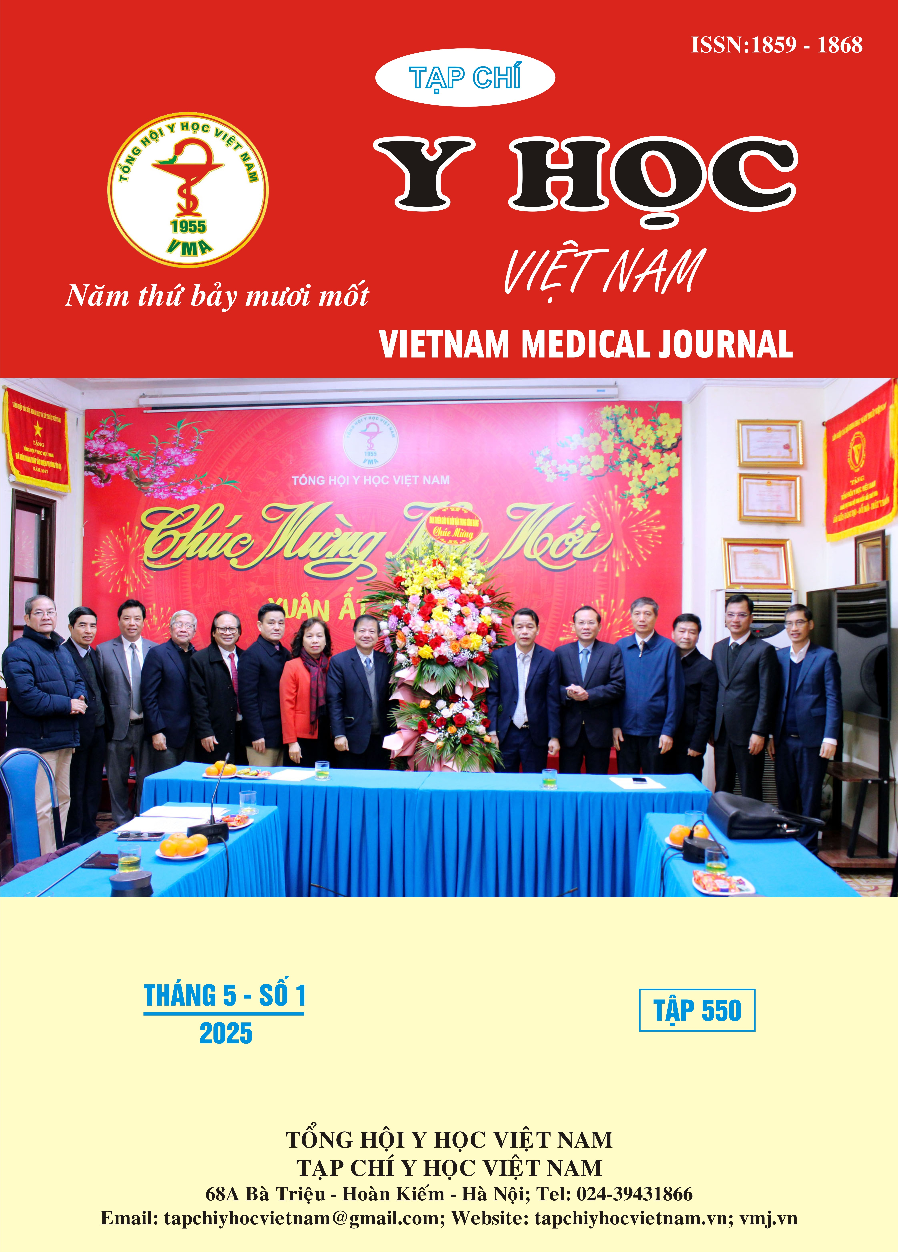KIẾN THỨC, THÁI ĐỘ VÀ RÀO CẢN TIẾP CẬN DỊCH VỤ CHẨN ĐOÁN RỐI LOẠN PHỔ TỰ KỶ Ở NGƯỜI CHĂM SÓC
Nội dung chính của bài viết
Tóm tắt
Mục tiêu: Khảo sát kiến thức về rối loạn phổ tự kỷ và thái độ, rào cản tiếp cận dịch vụ chẩn đoán rối loạn phổ tự kỷ ở người chăm sóc trẻ tự kỷ. Phương pháp nghiên cứu: Mô tả cắt ngang. Kết quả: 150 người chăm sóc trẻ mắc rối loạn phổ tự kỷ được đưa vào nghiên cứu. Kết quả có 73,3% người chăm sóc trẻ đã từng được tiếp cận kiến thức về rối loạn phổ tự kỷ nhưng hầu hết tổng điểm kiến thức ở mức trung bình và dưới trung bình (62,8% và 31,8%). Nguồn tiếp cận kiến thức chủ yếu từ Internet (89,1%), trong khi nguồn từ nhân viên y tế (12,7%) và trường học (9,1%) còn thấp. Kiến thức tốt hơn ở nhóm người chăm sóc có trình độ từ trung cấp trở lên, nhóm có nghề nghiệp là cán bộ viên chức và nhóm sống ở khu vực thành thị (p < 0,05). Có 84,7% người chăm sóc đã có thái độ trì hoãn không cho trẻ đi khám ngay khi phát hiện dấu hiệu bất thường. Khi phát hiện trẻ có bất thường về phát triển 49,4% người chăm sóc đưa trẻ đi khám tại các phòng khám nhi, chỉ 18,1% trẻ được khám tại phòng khám chuyên khoa tâm thần. Rào cản tiếp cận chẩn đoán chủ yếu do còn thiếu kiến thức và nhận thức: Có 66,3% người chăm sóc cho rằng những bất thường mà họ thấy ở trẻ không phải là bệnh nên không cần đi khám, 87,3% người chăm sóc muốn chờ đợi thêm, 44% bị ảnh hưởng bởi ý kiến gia đình; 8,7% từng khám nhưng được bác sĩ kết luận trẻ bình thường hoặc mắc bệnh khác dẫn đến chủ quan. Kết luận: Nghiên cứu cho thấy phần lớn người chăm sóc vẫn chưa có đủ kiến thức và thái độ chủ động trong việc đưa trẻ đi khám dẫn tới những rào cản tiếp cận chẩn đoán do thiếu hiểu biết. Do đó, việc tăng cường truyền thông, nâng cao kiến thức về rối loạn phát triển cho cộng động là vô cùng quan trọng giúp cải thiện khả năng phát hiện và can thiệp sớm cho trẻ mắc rối loạn phổ tự kỷ.
Chi tiết bài viết
Từ khóa
Rối loạn phổ tự kỷ, người chăm sóc, kiến thức, thái độ, rào cản
Tài liệu tham khảo
2. Lyall K, Croen L, Daniels J, et al. The Changing Epidemiology of Autism Spectrum Disorders. Annual Review of Public Health. 2017; 38:81-102. doi:10.1146/annurev-publ health-031816-044318
3. Le Thi Vui, Duong Minh Duc, Nguyen Thuy Quynh, et al. Early screening and diagnosis of autism spectrum disorders in Vietnam: A population-based cross-sectional survey. Journal of Public Health Research. 2021;11(2). doi: 10.4081/jphr.2021.2460
4. Herbrecht E, Lazari O, Notter M, et al. Short-Term and Highly Intensive Early Intervention FIAS: Two-Year Outcome Results and Factors of Influence. Frontiers in Psychiatry. 2020;11. Accessed April
5. Anwar MS, Tahir M, Nusrat K, et al. Knowledge, Awareness, and Perceptions Regarding Autism Among Parents in Karachi, Pakistan. Cureus. 10(9):e3299. doi:10.7759/ cureus.3299
6. Dababnah S, Parish SL. “At a moment, you could collapse”: Raising children with autism in the West Bank. Children and Youth Services Review. 2013;35(10): 1670-1678. doi:10.1016/ j.childyouth.2013.07.007
7. Shorey S, Ng ED, Haugan G, et al. The parenting experiences and needs of Asian primary caregivers of children with autism: A meta-synthesis. Autism. 2020;24(3):591-604. doi:10. 1177/1362361319886513


